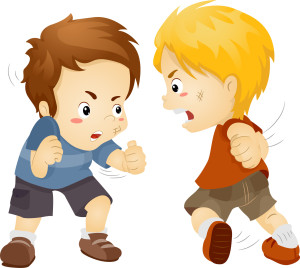
You’ve probably heard of someone being charged with disorderly conduct, but you may not know exactly what that means. In fact, there are a number of different ways a person can be charged with the crime of disorderly conduct. Today, we take a closer look at the statute, and explain the different ways a person can be hit with a charge of disorderly conduct in Minnesota.
Disorderly Conduct Context
As we mentioned above, disorderly conduct comes in many forms, but here are the three ways the state defines the crime. A person is guilty of disorderly conduct if they engage in any of the following activities, with reasonable grounds to know that it will, or will tend to, alarm, anger, or disturb others or provoke an assault or breach of police:
1. Engage in brawling or fighting
This one is pretty straight forward. If you end up in a physical fight with another person, and it is not considered self-defense, you will be charged with disorderly conduct.
2. Disturbs an assembly or meeting, not unlawful in its character;
If you knowingly and intentionally disrupt a meeting, you can be charged with DC. This doesn’t just apply to disrupting government meetings. If you disrupt a religious event, a board meeting or even a family cookout at a park, you can be hit with a disorderly conduct charge.
3. Engages in offensive, obscene, abusive, boisterous, or noisy conduct or in offensive, obscene, or abusive language tending reasonably to arouse alarm, anger, or resentment in others.
The final point is also the most loaded point. Conduct, in this sense, can refer to either physical or verbal conduct. For example, physical conduct that could earn a disorderly conduct charge would being kicking over a grill or throwing a birthday cake onto the ground at that family cookout we referenced above. Verbal conduct, using the same example, would include yelling obscenities at the family while they are trying to enjoy the cookout. Verbal conduct also includes what the Minnesota Supreme Court classifies as “fighting words” or words/gestures that are so insulting that it is likely to provoke an ordinary person to fight. The court looks at a variety of factors, including the words stated, the victim’s ability to diffuse the situation, and the nature of the alleged perpetrator at the time of the incident to determine if the conduct could be classified as “fighting words.” For example, a bar patron had his disorderly conduct charge upheld after yelling sexual-based insults at a bar manager. The court found that the words were meant to intimidate and embarrass the bartender, and the bartender could not simply walk away from the altercation.
Lastly, loud and noisy conduct can also result in a disorderly conduct charge. Even if your words aren’t vulgar, if the volume of your actions is such that it disturbs normal activity, and requests to change the behavior go unheeded, you may be charged with disorderly conduct. For example, if you went to see a play and just screamed loudly for 10 minutes during the show, you could be charged with disorderly conduct.
Anyone charged with DC faces a potential 90-day prison sentence and a fine up to $1,000.





